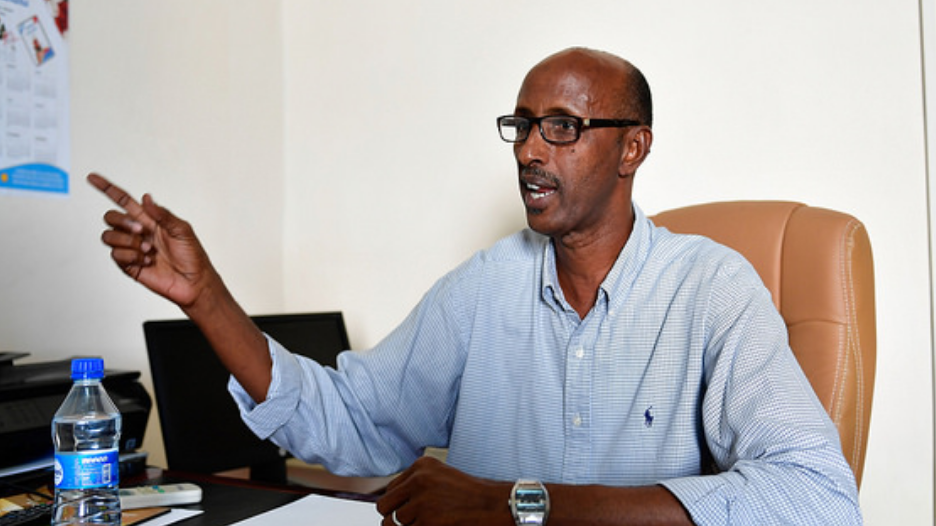Abdirizak Mohamed Aden knows all too well the effects of a prolonged civil war on a population.
Abdirizak was of the many Somalis forced to flee at the height of a bloody civil war in 1991 that brought to an end the long reign of President Siad Barre. He ended up in the United States as a refugee seeking peace and stability which had become elusive in Somalia.
Though he fled to save his life, he never forgot the challenges facing his motherland and maintained close contact with those who remained behind.
After a 25-year sojourn, Abdirizak is back in Somalia playing the role of a peace-builder by lecturing students on conflict prevention at the Somali National University, a public institution. He also runs a non-governmental organization aiding youths to acquire education and avoid being radicalized and exploited by extremist groups.
“You need to change your life to change others. I’m changing one life at a time,” the lecturer says of his role as a peacebuilder.
Abdirizak still remembers the dark years of the 1990s, and would not want history to repeat itself.
“I never want to see Somalia to go back to the days of the civil war. We must all prevent that from happening at all cost,” he adds.
It is partly the reason why he chose to be a peacebuilder and enrolled for a degree in conflict resolution in the United States to prepare for the arduous task ahead. Through his hard work, he finally graduated with a doctorate degree, making him a respected scholar on Somali conflict studies.
“Two years ago I decided to settle and rebuild my country through education. I believe education is the eternal foundation of a nation’s development,” says Abdirizak.
He left a comfortable job as a lecturer in Somali language and culture at Harvard University and also wound up the nongovernmental organization Global Peace, which he had helped establish, to fully concentrate on peacebuilding in Somalia.
Abdirizak currently teaches global peace at the national university, a topic he had extensively researched and was part of his doctoral thesis.
He also shares his experiences and knowledge with the youth, women and even elders in public gatherings in malls, mosques, schools and halls among others.
“I also write articles in the media and get invitations to give talks in workshops on peacebuilding. This work is dear to me,” Abdirizak remarks.
Through his personal efforts, more than 1,000 students have managed to enrol in the university to pursue careers of their own choice, a rare achievement in a country yet to fully recover from decades of war.
“In addition, for the last two years I have created an atmosphere to openly discuss issues of peace facing the Somali community,” Abdirizak adds.
The university lecturer has not only managed to champion the rights of the youth, but has also been instrumental in bringing together religious and clan elders to discuss peace in the country.
And with a new president in office, the lecturer is full of optimism that the country is about to turn the corner towards peace and stability.
“Somalia will change. I can see the signs all over,” he observes, pointing out that the enthusiasm with which the current government has been embraced internationally gives him plenty of hope.
And what is his message to his fellow Somalis, as the world prepares to celebrate the International Day of Peace on 21 September?
“Peace is not a one-day affair, you must make a contribution to it daily through your actions,” Abdirizak says.






